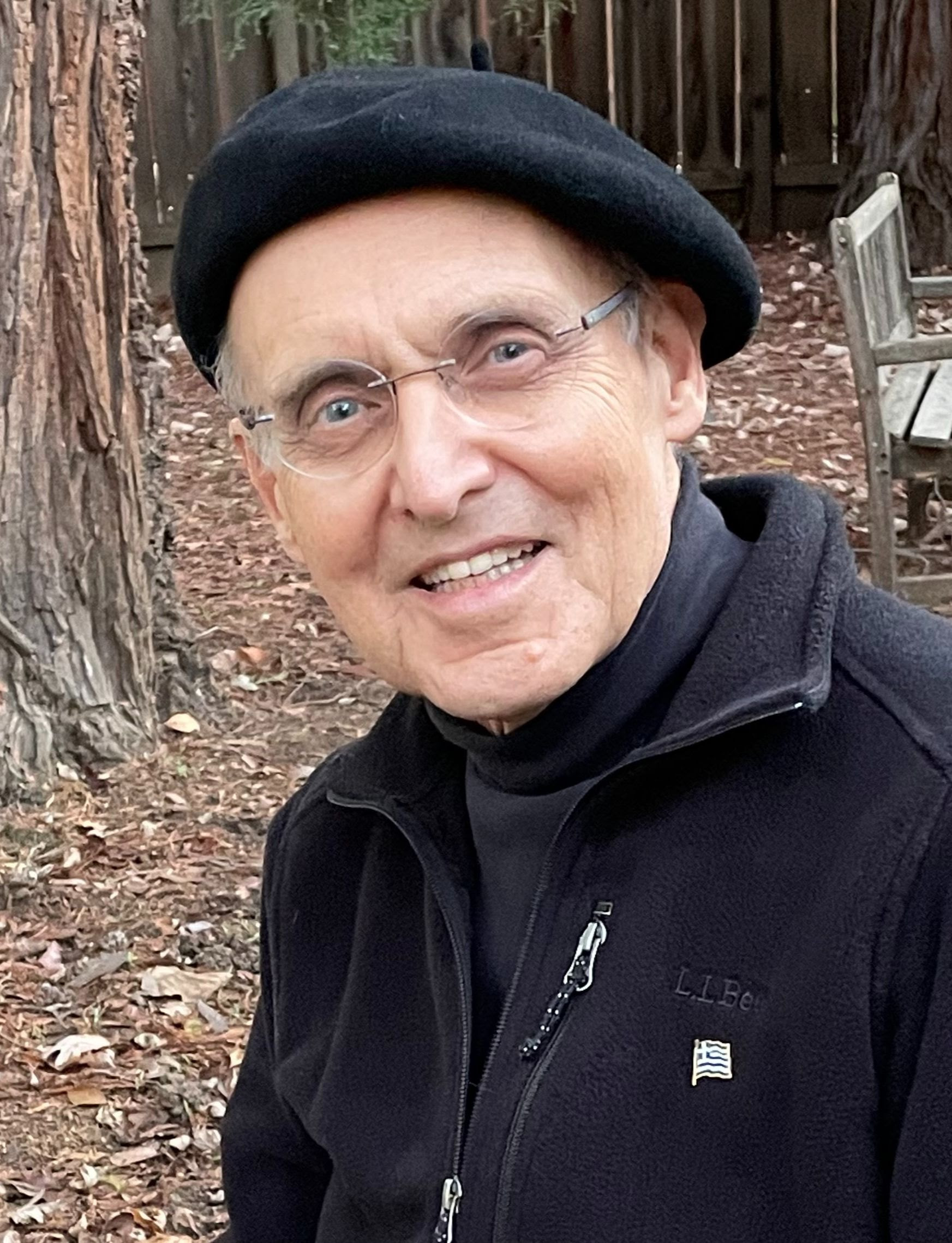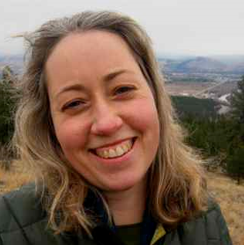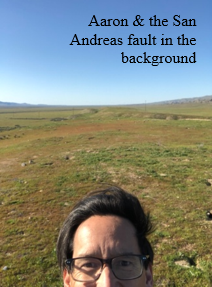Greetings RJA Members,
Giving thanks and a welcome…
Much has evolved in our Association since our last President’s Message: publication of two new volumes of Jeffers’s previously unpublished works, several changes in leadership, plans for the first cohosted, in person RJA/Tor House Foundation Fall Festival in October 2022, and the initiation of a THF Jeffers webinar series. The intellectual space for this growth is due in no small part to our past president, Emeritus Professor Jim Karman. We all are well acquainted with Jim’s erudite Jeffers scholarship: the three-volume Collected Letters of Robinson Jeffers, with Selected Letters of Una Jeffers and the Poet and Prophet biography. His leadership and compassionate consideration of the ways and means of keeping the RJA relevant, progressive, and sustainable are equally significant. I also happily acknowledge my gratitude to Paula Karman who has contributed immeasurably to the work of RJA and the continual and uninterrupted dissemination of Jeffers Studies. As your new president, I am extremely grateful to have Jim on “speed dial,” as this will enable a successful transition and the maintenance of the innovative programming that he, Tim Hunt, and others have begun.
We all are well acquainted with Jim’s erudite Jeffers scholarship: the three-volume Collected Letters of Robinson Jeffers, with Selected Letters of Una Jeffers and the Poet and Prophet biography. His leadership and compassionate consideration of the ways and means of keeping the RJA relevant, progressive, and sustainable are equally significant. I also happily acknowledge my gratitude to Paula Karman who has contributed immeasurably to the work of RJA and the continual and uninterrupted dissemination of Jeffers Studies. As your new president, I am extremely grateful to have Jim on “speed dial,” as this will enable a successful transition and the maintenance of the innovative programming that he, Tim Hunt, and others have begun.
 In that vein, I would like to formally introduce Emeritus Professor Tim Hunt as our new executive director. If I need to introduce Tim to the RJA membership, then we may have a problem at the very core of our mission! After editing four volumes of Jeffers’s verse craft and composing a fifth on the chronology, exposition, and textual analysis of the poems, many would retire and enjoy their laurels. Instead, Tim has gone on to edit, with Rob Kafka, the extraordinary Point Alma Venus manuscripts and create a series of new Jeffers programming initiatives to engage both Jeffers scholars and the general public. Tim has also published a new volume of original poetry—more on this to follow.
In that vein, I would like to formally introduce Emeritus Professor Tim Hunt as our new executive director. If I need to introduce Tim to the RJA membership, then we may have a problem at the very core of our mission! After editing four volumes of Jeffers’s verse craft and composing a fifth on the chronology, exposition, and textual analysis of the poems, many would retire and enjoy their laurels. Instead, Tim has gone on to edit, with Rob Kafka, the extraordinary Point Alma Venus manuscripts and create a series of new Jeffers programming initiatives to engage both Jeffers scholars and the general public. Tim has also published a new volume of original poetry—more on this to follow.
 The final addition to our leadership team is the election of new Advisory Board member, Louise Economides, who will join existing members Robert Zaller and Gere diZerega. Louise is a professor of literature at the University of Montana, where she focuses on the intersection of environmental studies and the humanities. Louise has written on “Robinson Jeffers, Geopoetry, and the Anthropocene,” as well as numerous articles and published volumes, including Blake, Heidegger, Buddhism and Deep Ecology: A Fourfold Perspective on Humanity’s Relationship to Nature; The Ecology of Wonder in Romantic and Postmodern Literature; and the forthcoming Wild Anthropocene: Literature, Environmental Justice and the Future of Biodiversity (Routledge). I am extremely excited to welcome Louise to the Board.
The final addition to our leadership team is the election of new Advisory Board member, Louise Economides, who will join existing members Robert Zaller and Gere diZerega. Louise is a professor of literature at the University of Montana, where she focuses on the intersection of environmental studies and the humanities. Louise has written on “Robinson Jeffers, Geopoetry, and the Anthropocene,” as well as numerous articles and published volumes, including Blake, Heidegger, Buddhism and Deep Ecology: A Fourfold Perspective on Humanity’s Relationship to Nature; The Ecology of Wonder in Romantic and Postmodern Literature; and the forthcoming Wild Anthropocene: Literature, Environmental Justice and the Future of Biodiversity (Routledge). I am extremely excited to welcome Louise to the Board.
President’s Message: Why the RJA?
 “Civilization exists by geologic consent, subject to change without notice.” This quote, often attributed to Will Durant, contextualizes our modern condition and allows us to recognize the fragile connection between the environment and the culture—civilization—through which we interpret our existence. If we include the organic changes that arise from evolutionary biology in the broader context of Earth evolution, we might consider “biological consent” as equally subject to change without notice (read: viruses). Our existence has always been subconsciously predicated on the notion of earthly and biological stability. Yet here we are, amidst a global pandemic, the recent eruption of Hunga Tonga (right), and natural and anthropogenic climate change. We are faced with geologic phenomena that would find a fitting home in the poetry of Robinson Jeffers.
“Civilization exists by geologic consent, subject to change without notice.” This quote, often attributed to Will Durant, contextualizes our modern condition and allows us to recognize the fragile connection between the environment and the culture—civilization—through which we interpret our existence. If we include the organic changes that arise from evolutionary biology in the broader context of Earth evolution, we might consider “biological consent” as equally subject to change without notice (read: viruses). Our existence has always been subconsciously predicated on the notion of earthly and biological stability. Yet here we are, amidst a global pandemic, the recent eruption of Hunga Tonga (right), and natural and anthropogenic climate change. We are faced with geologic phenomena that would find a fitting home in the poetry of Robinson Jeffers.
Given the increasing global recognition of this fragility, several questions arise. How can the RJA increase and sustain Jeffers’s voice in the larger dialogue on the reevaluation of our position in the environmental, spiritual, and political landscape? Where do we go 60 years on from Jeffers’s death? Has he reached a wider reading public? Is he regularly anthologized and taught? How has his work shaped subsequent generations of readers, poets, artists, and critics? As even casual readers are aware, Jeffers claimed not to be swayed by popular opinion nor even the desire for readers. Perhaps a bit of braggadocio, but not without some rationale. Jeffers crafted his poetry, and indeed his larger artistic project, involving the design and construction of Tor House and Hawk Tower, with the intentions of existential longevity and endurance.
How can the RJA endeavor to demonstrate that Jeffers’s artistic achievements provide a fundamental metaphor for the 21st century homo sapien? That is, one who is patient, observant, constructive, compassionate—yes, despite his assertions of hawks over humans, Jeffers was deeply compassionate—and, ever more resonant today, one who leads a life of sustainability.
 I have no definitive answers for these questions, but there are many possibilities waiting to be explored. I look forward to working with all of you to increase and sustain the influence of Robinson Jeffers on homo sapiens. He and we are worth the effort.
I have no definitive answers for these questions, but there are many possibilities waiting to be explored. I look forward to working with all of you to increase and sustain the influence of Robinson Jeffers on homo sapiens. He and we are worth the effort.
My very best wishes to each of you, and I look forward to future dialogues with all of you.
Aaron Yoshinobu (he/him)
President, RJA
Email: aaron.yoshinobu@ttu.edu
2022 Joint RJA/Tor House Foundation Fall Festival Announcement
We would like to invite you to attend the upcoming in-person 2022 Fall Festival, co-hosted by the RJA and the Tor House Foundation, in Carmel, CA, from October 14 to 16. The theme of the festival will be the Jeffers family’s 1929 travels to Ireland and Scotland, with special emphasis on the recently published 1929 Travel Diaries and the connections with Jeffers’s volume, Descent to the Dead. Presentations on other topics are welcome, as well.
The festivities will begin with a Sunset Celebration at Tor House on Friday evening. Public presentations will follow on Saturday at the Carmel Woman’s Club; Saturday evening will include a dedication of sculptures at Jeffers Plaza in Monterey, followed by dinner; on Sunday morning we will gather at Tor House for a farewell breakfast. Specific details and registration information will be sent later in the summer.
The deadline for proposals is July 15. Please submit your proposal and any questions you may have to president@
New Programming and Membership Benefits…
Jeffers Studies is one way we share insights and ideas concerning Jeffers. Other ways include our RJA–THF webinars and our newly introduced programming channel for Zoom-based seminars and open discussions. For more information about the programming channel and for a sign-up link, click here: https://mailchi.mp/
If you have not already done so, please remember to remit your 2022 membership dues. Here is a link to the “Join or Renew” page on our website: https://
News from Jeffers Country
We are pleased to welcome Rick Applegate (Tucson, AZ), Ronald Janssen (Huntington Station, NY), Clark McCann (Issaquah, WA), John Ryan (Howell, NJ), and Katrien Vander Straeten (Wayland, MA) as new members of the RJA.
Cory Willard published “Uncenter Yourselves: Revisiting Robinson Jeffers’s Inhumanism in the Age of The Overstory” in Western American Literature, Vol. 56, No. 3-4 (2021), 237-52: https://muse.jhu.edu/
An art exhibit titled The Fire of Heaven: Enrique Martínez Celaya and Robinson Jeffers is on display at the Monterey Museum of Art (Monterey, CA) from May 12, 2022, to October 9, 2022: https://montereyart.org/
Elise M. Eden performed three recitals and submitted a “Voice Dissertation” for a DMA at the University of Michigan in 2021. One of the recitals featured a performance of Songs of Autumn—five poems by Jeffers set to music by composer Jessica Hunt.
Sara Judy completed a PhD dissertation at the University of Notre Dame in April 2022 titled “Singing in the Late Season: Prophetic American Poetry in the Post-War Period.” Her study “shows how social protest poetry written in the U.S. after the second World War, by Robinson Jeffers, Muriel Rukeyser, and Jorie Graham, challenges and complicates traditional notions of prophecy in American poetry.”
Carter Davis Johnson earned an MA at Virginia Tech University in April 2022 with a thesis titled “The Dust Dwellers: The Environmental Philosophy of John Steinbeck, Robinson Jeffers, and Jack London.” Johnson examines “the environmental philosophy of three Californian modernists . . . collectively named the Dust Dwellers: John Steinbeck, Robinson Jeffers, and Jack London” from a Jungian perspective.
Congratulations to Tim Hunt on Voice to Voice in the Dark, a new collection of poems scheduled for publication by Broadstone Press on July 15. As one appreciative reader writes, “I love how this luminous book sees a person—any person, not just a poet, or a singer, or a revolutionary—as a voice among voices—and by doing so, enables us to hear America again.” For more information see https://www.broadstonebooks.
